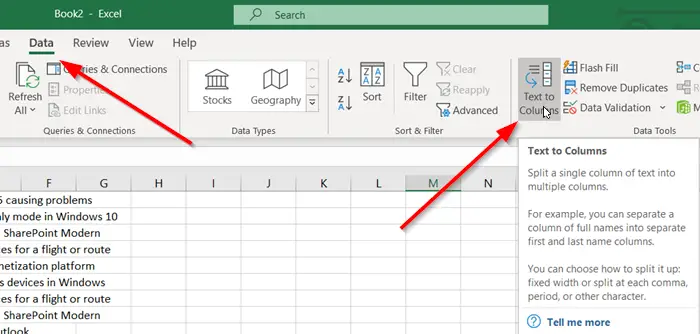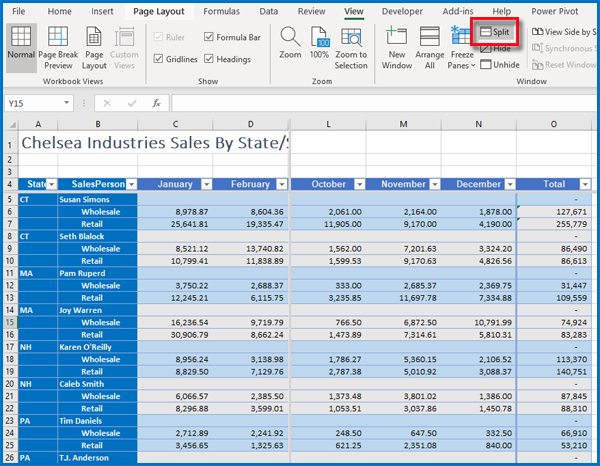

#EXCEL SPLIT SCREEN WORDBOOK WINDOWS#
Then when opening files you can non-maximize the files in the workspace below the Ribbon (or honestly named Menu) and size their windows to fit the available space Excel gives you, but keeping each to just one monitor's portion of that space.

Anyway, you make the program window cover some or all of each monitor. Make sure you tell Windows to treat the monitor on the left as Monitor 1, then Monitor 2 on its right or it will probably bug you each time, you know, dragging the left border left. Then, here's the fun part: you can drag the border past the edge of the screen onto the second monitor. Make it as large as you like, just not formally "Maximized". Never had two monitors while using MDI.Ī second way is that you can non-maximize your window. I certainly did until the fixed the SDI stuff a little. They must be right about it being good "capability" due to the number of us complaining.) If you can live with that, do that. Since it doesn't recognize the other instance as itself, it only offers standard Windows copy and paste. (The copy and paste thing is due to Excel adding "capability" that is actually useful mostly in it to what you think is Windows copy and paste, functionality that is only available inside the program itself. You DO lose some capability vis-a-vis copy and paste, but maybe you can live with that, and other differences. Since they are entirely separate, you can move their windows as desired. Each one, or several of them, will regard the others as nothing to do with it, as if they were even different programs the way Acrobat or Photoshop are different from Excel. For instance, you can do as Allen points out and open an entirely different instance of Excel. There's one master window and all the files you open IN THAT INSTANCE of Excel will remain IN IT and cannot be pulled out. Versions before killing MDI off have a different problem: You can't pull a file's working window out of the basic program's framework (Ribbon or non-mendaciously named "Menu", QAT, and so on. So one monitor might have one file open, the other a different one, and the third one none at all.Ĭosts are several, but since MS is adamant about it remaining this way (for, say, another 10-15 years when they will surely change back to MDI and act like no one could ever want it any different.) Bang it on the top of the monitor and it maximizes (the only way to fly). You just grab the window and move it to the monitor you desire, or since it is a window, anywhere.
#EXCEL SPLIT SCREEN WORDBOOK FULL#
The Tip should be fairly radically updated to take into account the two possible situations people face.Īfter 2013, your version will let you easily move the files about because it opens each in its own "window" filled with the full program layout. Also, there is one drawback to this approach: The ribbon extends across the top of both monitors, which can (once in a while) make getting to some of the tools on the ribbon a bit interesting. If you prefer, you can record a macro as you do these steps, and then run that macro each time you want to position your workbooks. Drag the borders of the workbooks so that each appears fully in the left and right monitor windows.Make sure the Vertical radio button is selected.You should see the Arrange Windows dialog box. Click the Arrange All tool in the Window group.Open the second workbook in this same instance of Excel.Your program window should now cover most of the extended desktop, across two monitors. Drag the right side of the program window into the right-most monitor.(Drag the title bar of that program window into that monitor, if necessary.)



 0 kommentar(er)
0 kommentar(er)
